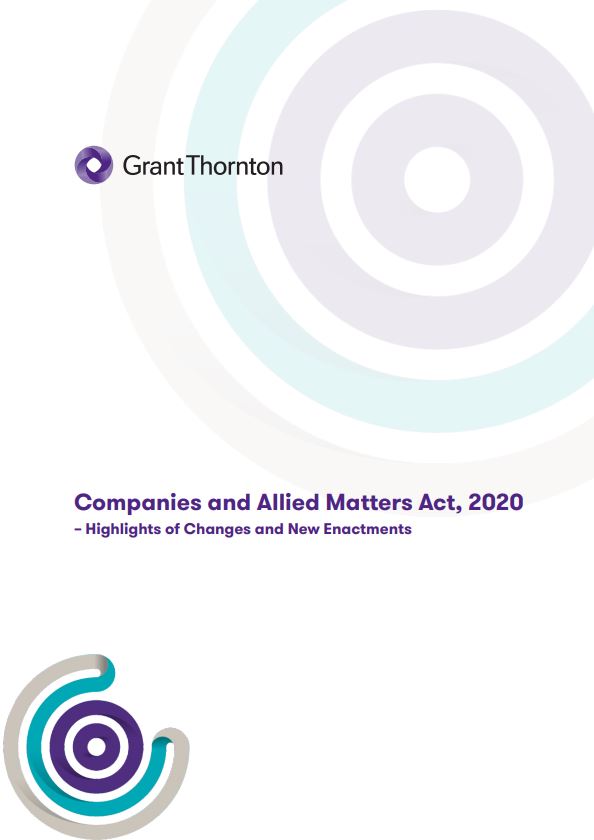Introduction
President Muhammadu Buhari on Friday, 07 August 2020 in Abuja assented to the Companies and Allied Matters (CAMA) Bill, 2020 recently passed by the National Assembly.
The Companies and Allied Matters Act, 2020 repeals the Companies and Allied Matters Act, Cap. C20, Laws of the Federation of Nigeria, 2004 to provide for the incorporation of companies, limited liability partnerships, limited partnerships, registration of business names together with incorporation of trustees of certain communities, bodies, associations.
In a bid to promote investments, create more jobs and boost investors' confidence, The CAMA 2020 is more regulatory friendly as it reduces regulatory hurdles, eases business environment, and minimizes the compliance obligation of small and medium scale enterprises (SMEs). All these are expected to ameliorate the economy and increase gross domestic product (GDP).
Main Highlights
- Pre-action notice and restriction on levy of execution (Section 17)
- Right to form a Company (Section 18)
- Private Company - Transfer of shares restriction (Section 22)
- Companies limited by Guarantee (Section 26)
- The concept of minimum Issued Share Capital (Section 27)
- Statement of Compliance (Section 40)
- Common Seal of the Company (Section 98)
- Registration of Charges (Section 222)
- Annual General Meetings (Section 240)
- Powers and duties of the Chairman of the General Meeting (Section 265)
- Multiple Directorship (Section 307)
- Appointment of a Company Secretary (Section 330)
- Qualification of a Small Company (Section 394)
- Exemption from Audit requirement (Section 402)
- Limited Liability Partnership (Section 746-794)
- Limited Partnership (Sections 795-810)
Conclusion
All the new features and amendments are meant to promote transparency, protect owners of businesses (majority and minority), protect the Commission, encourage small businesses, and improve good corporate governance practice in Nigeria. All these are expected to increase the amount of tax revenue generated by the government from corporations.

